According to the results of the survey of Belarusian cities-signatories of the Covenant of Mayors, measures to improve the energy efficiency of buildings and central heating are the most priority topics for conducting training events. February 8-9, 2018 in Minsk, a seminar-training "Improving the energy efficiency of buildings and heating systems to achieve the goals of the Covenant of Mayors was held. Participants were experts from Germany, Ukraine and Belarus.
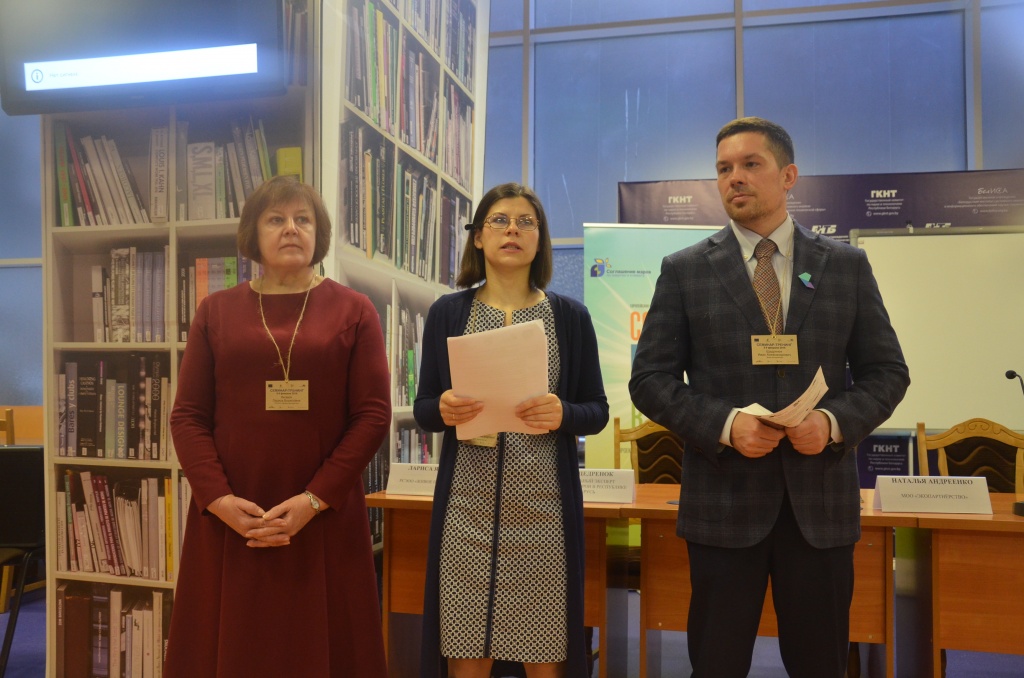
At the opening of the event, the coordinator of the EU project “Strengthening the Covenant of Mayors movement in Belarus” Natallia Andreyenka stressed the importance of the topic chosen for the training.
‒ Today in this hall representatives of the housing and communal services system of almost all the cities-signatories of the Mayors' Agreement in Belarus participating in drawing up the Action Plan for Sustainable Energy Development and Climate gathered. The knowledge gained will help you develop measures to reduce energy consumption in buildings and thus achieve your goals under the Covenant of Mayors, ‒ continued Natallia Andreyenka.
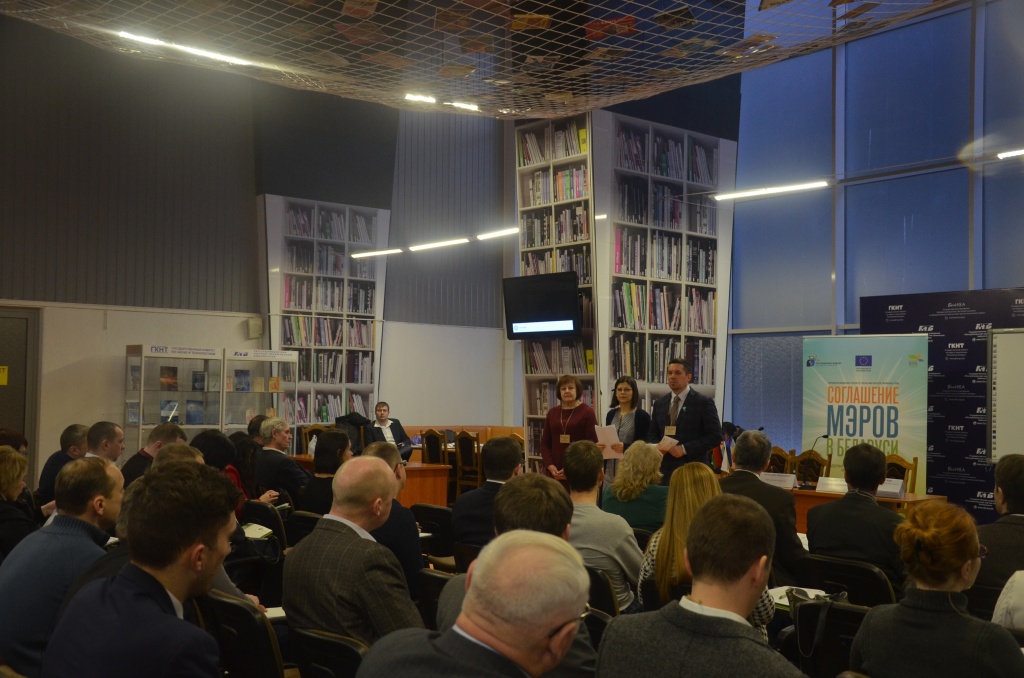
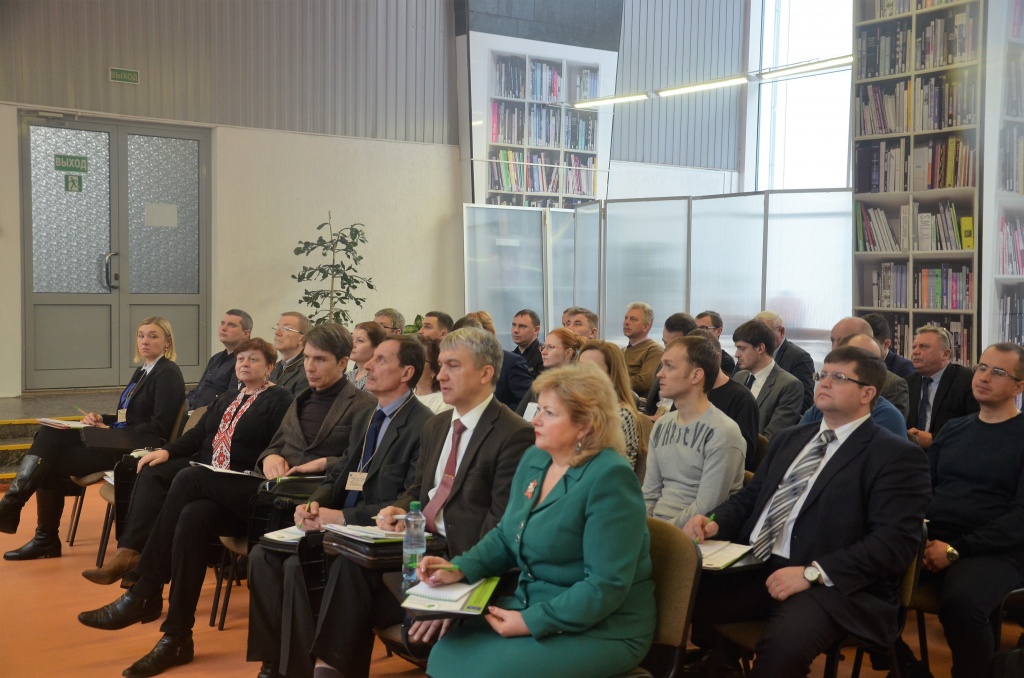
Expert of the Baltic Ecological Forum Matthias Graz presented to the participants of the seminar the difference of modern integrated energy systems, which are actively developing in some countries and cities, from traditional systems based on the use of CHP and boiler houses. Fossil fuels are gradually giving way to renewable energy (wind, solar, heat pumps). At the same time, the efficiency of energy production, transmission, storage and consumption is increasing, and IT and smart technologies are being introduced. Combining heat supply and power generation systems with power supply of transport (development of electric transport) makes them even more flexible, intelligent and efficient. An essential element of the energy system is the storage of energy, primarily thermal energy. This allows energy supply to be more sustainable in case of natural disasters and climate change.
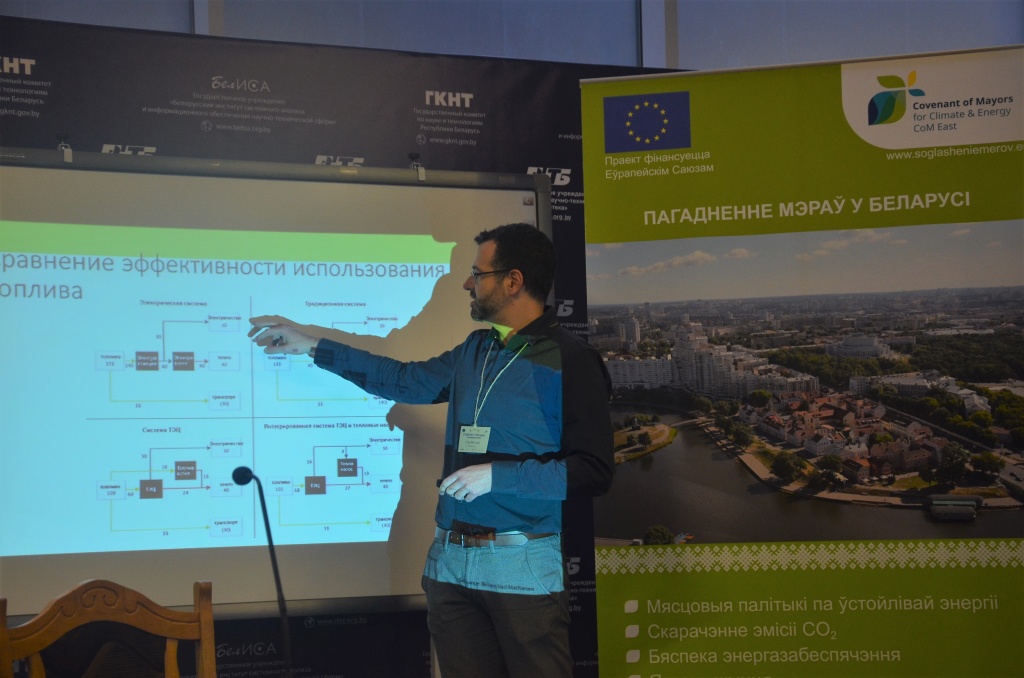
Technology of low-temperature heat supply was presented by technical expert of the Covenant of Mayors East Uladzimir Rak:
‒ Regulation of heat consumption is carried out either by changing the temperature of the coolant, or by changing its flow rate, or by changing both parameters. The main advantage of the first option is the stable hydraulic mode of the heating systems, but there is a high inertia (delay in regulating the heat load of the system), intensive corrosion of pipelines and other shortcomings. The second option gives more rapid regulation, reduced water flow and significant energy savings for transportation of coolant, reduced corrosion of pipelines, the possibility of using long-term non-metallic pipes in local networks and inexpensive methods for processing make-up water.
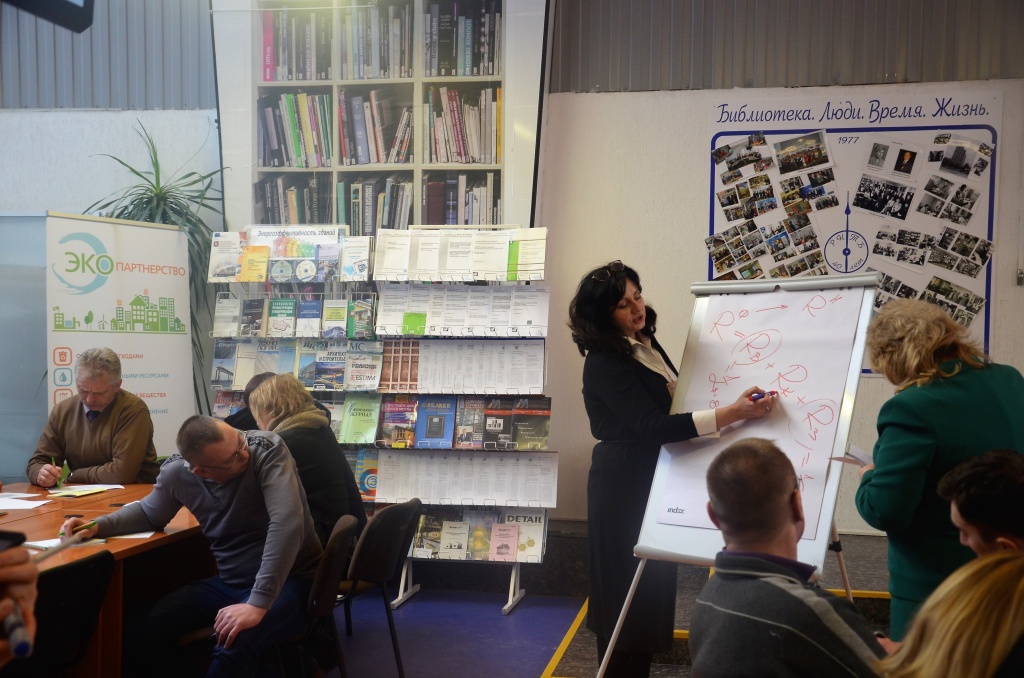
Two foreign speakers ‒ Larisa Shuldan (Association of Energy Efficient Cities of Ukraine) and Werner Neumann (formerly the head of the Frankfurt municipal energy agency for more than 20 years) spoke in the section "Energy Consumption in Buildings".
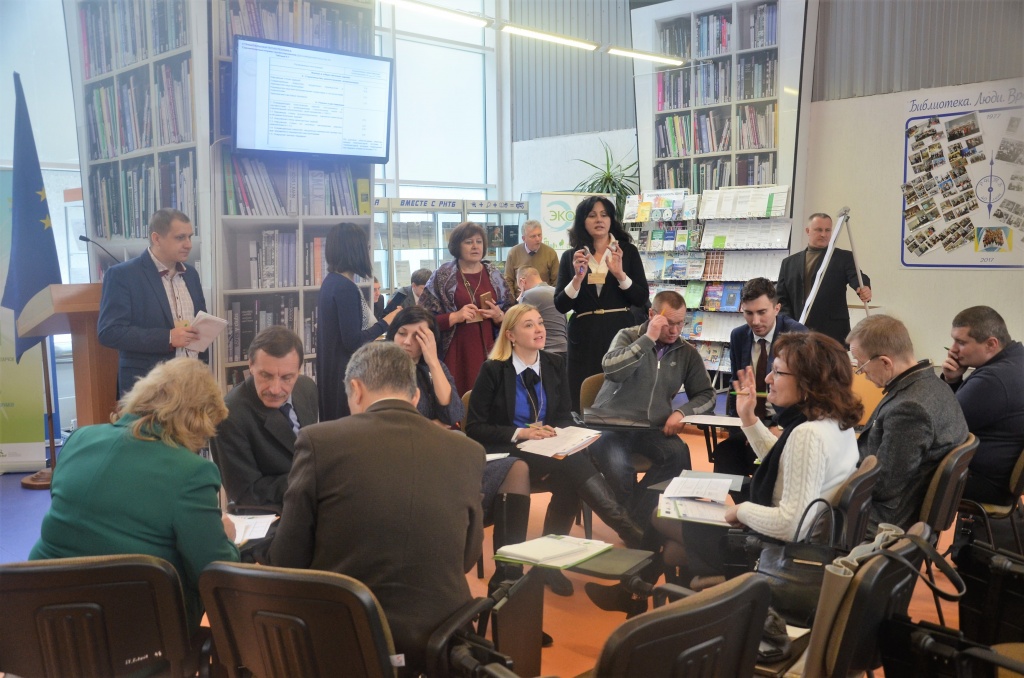
Larisa Shuldan talked about building structures and heat losses in buildings, noting that Belarus and Ukraine are in line with the standards in this respect at the level of Germany and Sweden in 2012.
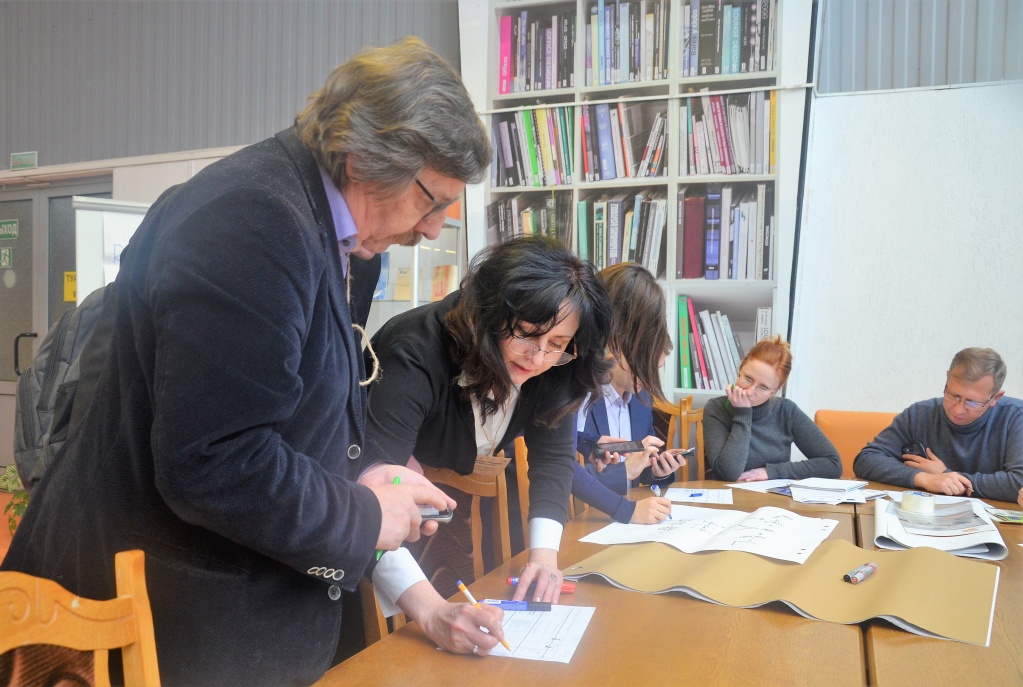
In turn, Werner Neumann shared the European experience in analyzing energy consumption in buildings. The key success factor is a well-functioning energy management system in the municipality, where consumption data for all sites are constantly collected and analyzed, and energy efficiency measures are developed on the basis of the analysis. The actual energy consumption should be compared with the calculated indicators, with data for the same period of the past years and with data for other buildings of the same purpose in the city. It is convenient when the data is collected automatically and allows you to make comparative diagrams. Calculation of the resistance to heat transfer for various building structures of buildings can also be done using the program www.u-wert.net.
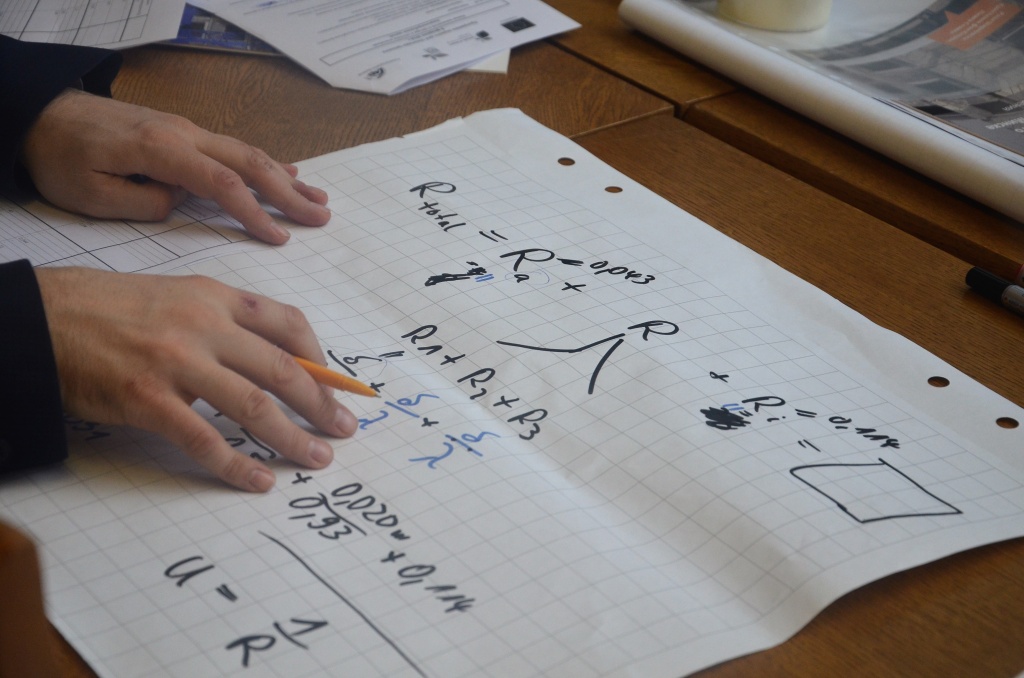
Organizers of the training seminar "Improving the energy efficiency of buildings and heating systems to achieve the goals of the Covenant of Mayors" were IPO "Ecopartnership", the Department of Energy Efficiency of the Republic of Belarus, the NGO "Live Partnership" and Foundation “Interaction”. The event was held with the financial support of the European Union (the project " Covenant of Mayors East II" and the project "Strengthening the Covenant of Mayors movement in Belarus”), German-Belarusian project "Environmental management as an instrument for building the capacity of the local communities for sustainable development".






